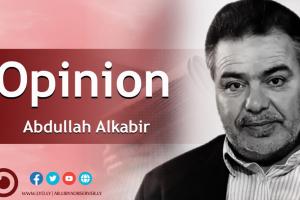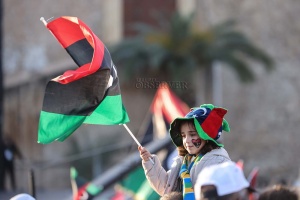By Abdullah Alkabir, political writer and commentator
On the latest developments

Last week witnessed several events that will impact the development of Libya’s political scene in the coming days and weeks. While these events won’t suddenly shift the scene to a new angle, their impact will unfold over the long term. Notably, these developments involve only a subset of actors, rather than all parties. Despite the lack of a clear course, results may emerge without consensus among all actors, under international auspices and supervision.
The most significant event was the Turkish government’s reception of Khalifa Haftar’s son, and the Turkish Foreign Minister’s statements indicating a rapprochement with Haftar’s camp in eastern Libya. This comes after years of hostility when Turkey’s military involvement played a role in undermining Haftar’s military campaign against Tripoli in 2019.
Turkey maintains close relations with the authorities in Libyan West, while simultaneously exercising calculated openness with the East. Recently, Turkey received Agila Saleh, the Speaker of the House of Representatives, and began opening its consulate in Benghazi. Additionally, Turkish companies secured contracts in the reconstruction programme led by the Haftar family in Eastern Libyan cities. Turkey aspires for further contracts, prompting direct communication with Haftar’s sons, who hold actual authority in the eastern region.
This rapprochement is closely tied to the resumption of relations between Turkey and Egypt. Initial understandings between the two countries on various matters play a role. The level of rapprochement between Turkey and Haftar’s camp will likely correlate with progress in Egypt-Turkey relations. Given Egypt’s influence over eastern Libya, any breach in relationship levels with international or regional parties would be unacceptable.
Another significant event involved the South African police arresting 95 Libyans secretly training at a remote military base. Details about the training remain undisclosed, and the two Libyan governments hold differing positions. While the Tripoli government denies affiliation with the group, the parallel government offers legal support. The group’s alignment with the gangs controlling the east becomes evident from this announcement. Transferring these groups to South Africa implies specialized, non-traditional military training, likely carried out by a security company in agreement with Haftar’s commanders. The South African government has referred the group to the judiciary, and as their trial begins, the mystery will gradually unravel, revealing many details.
Furthermore, the exclusive Speaker of the Tobruk House of Representatives announces once again the opening of candidacy for the presidency of the government. However, the High Council of State officially rejects this step, emphasizing their opposition to unilateral actions by the Speaker. Despite previous failures, Agila Saleh persists in forming a new government, disregarding the Constitutional Declaration and the Political Agreement. He already knows the rejection of the move by his partner, the High Council of State, but he may be banking on an expected change in the High Council of State’s presidency, which will hold renewal elections on August 5th. Agila Saleh and several political parties hope these elections will bring a new figure willing to negotiate with the party controlling the House of Representatives or even see the return of former President Khaled Al-Mishri who would resume his previous understandings with Agila Saleh, by sharing the new executive power, succeeding Dbeibah’s government.
The Government of National Unity, committed to remaining in power until an elected government takes over, will work to thwart this step. The High Council of State holds a crucial position in this regard. Maintaining Takala’s position or electing someone with similar views would force Agila Saleh and the extension movement to establish clear paths and agreed-upon election laws before forming a new government.
Agila Saleh’s return to the government file and the opening of nominations confirm his failure to secure the substantial budget he approved during a closed session in the House of Representatives with fewer than 48 representatives participating. If the Central Bank’s Governor has implemented the disbursement terms, part of the funds would go to the parallel government. In such scenario, Agila’s intentions would have been realized, potentially diverting his attention from the government file.
Disclaimer: The views and opinions expressed in this article are those of the writer, and do not necessarily reflect those of the Libya Observer



